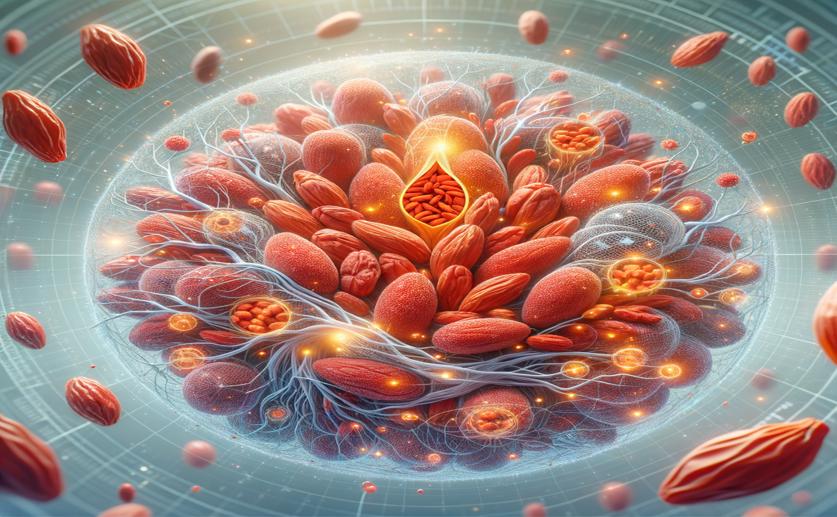
How Digestion and Size Affect the Immune Benefits of Goji Berry Extracts
Jenn Hoskins
30th June, 2024

Image Source: Natural Science News, 2024
Key Findings
- The study by the Beijing Institute of Pharmacology and Toxicology, China, explored how goji berry polysaccharides (LBPs) interact with the immune system
- Medium-sized LBPs (100-300 kDa) showed the strongest ability to bind to immune receptors and boost immune signaling
- The specific sugars in LBPs, like arabinose and galactose, enhance their immune-boosting effects
- Even after digestion, LBPs still help the immune system, despite breaking down into smaller pieces
References
Main Study
1) Impact of molecular weight and gastrointestinal digestion on the immunomodulatory effects of Lycium barbarum polysaccharides.
Published 27th June, 2024
https://doi.org/10.1016/j.ijbiomac.2024.133500
Related Studies
2) Analytical profiling of selected antioxidants and total antioxidant capacity of goji (Lycium spp.) berries.
3) Lycium Barbarum polysaccharide protects HaCaT cells from PM2.5-induced apoptosis via inhibiting oxidative stress, ER stress and autophagy.
4) Structural characterization of a polysaccharide from Lycium barbarum and its neuroprotective effect against β-amyloid peptide neurotoxicity.
5) Lycium barbarum polysaccharide extracts preserve retinal function and attenuate inner retinal neuronal damage in a mouse model of transient retinal ischaemia.



 29th June, 2024 | Greg Howard
29th June, 2024 | Greg Howard